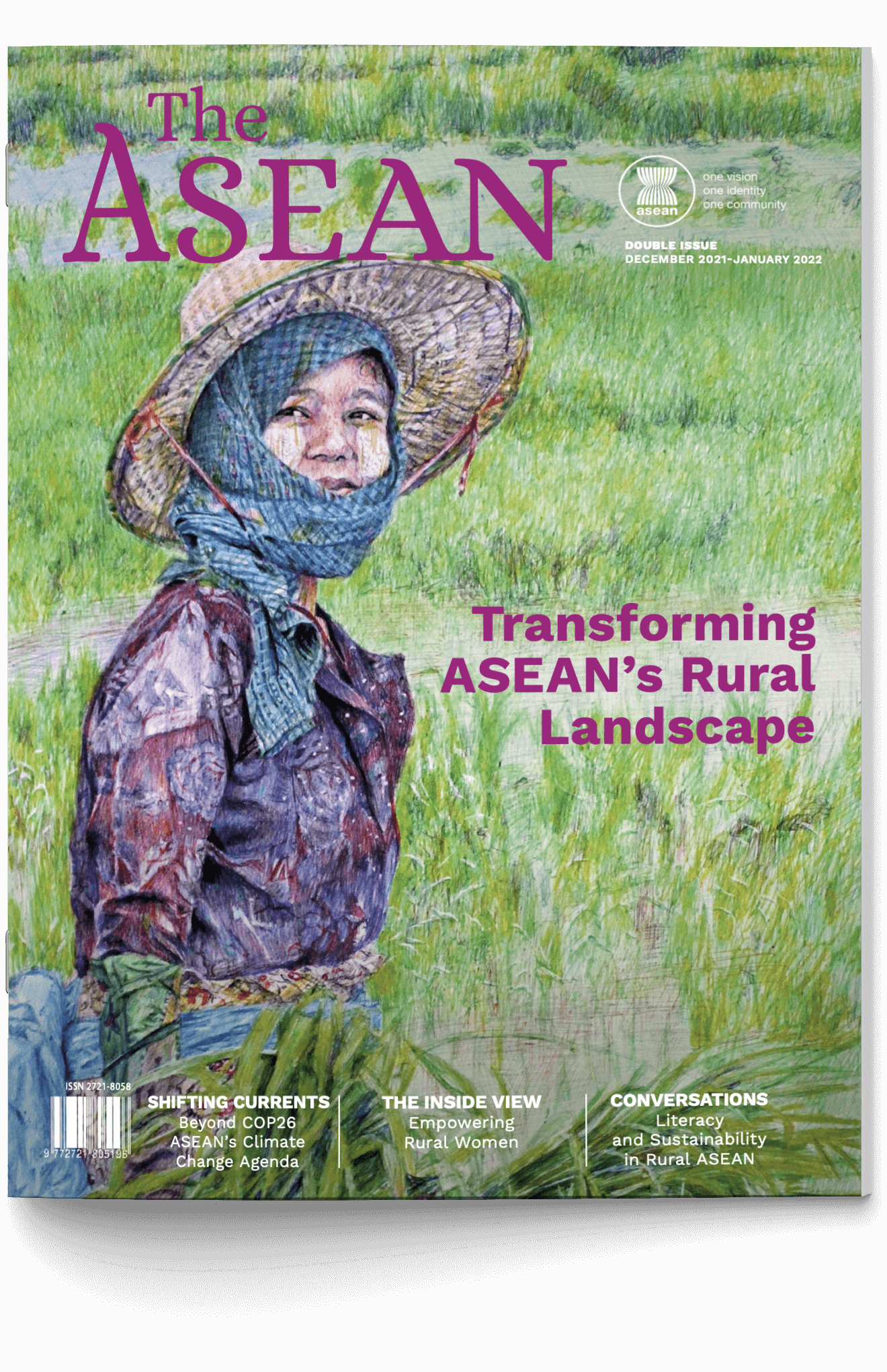
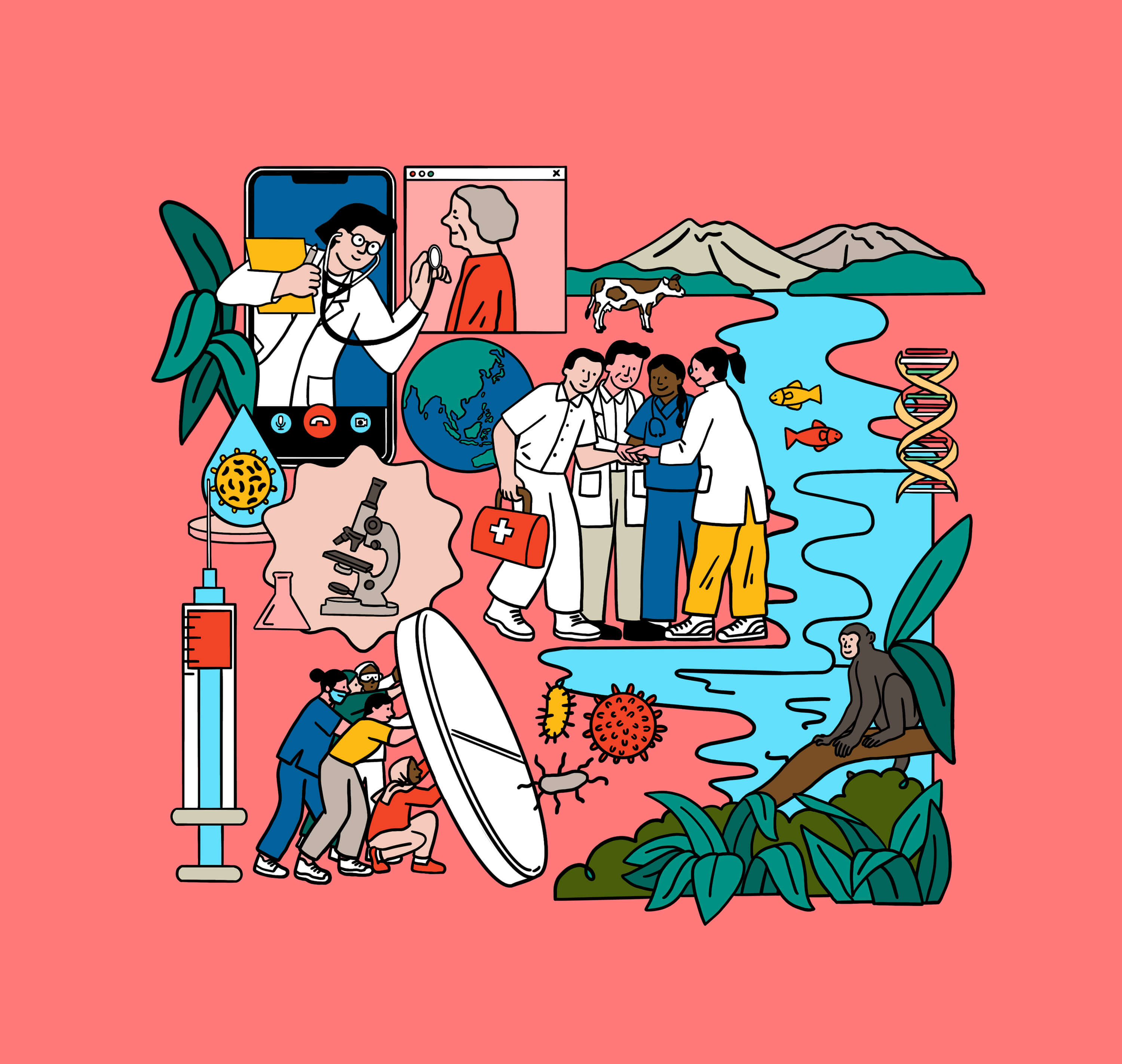
Subscribe to our newsletter:

Double Issue 19-20
December 2021-January 2022
Transforming ASEAN’s Rural Landscape
Inside this Edition
Themes
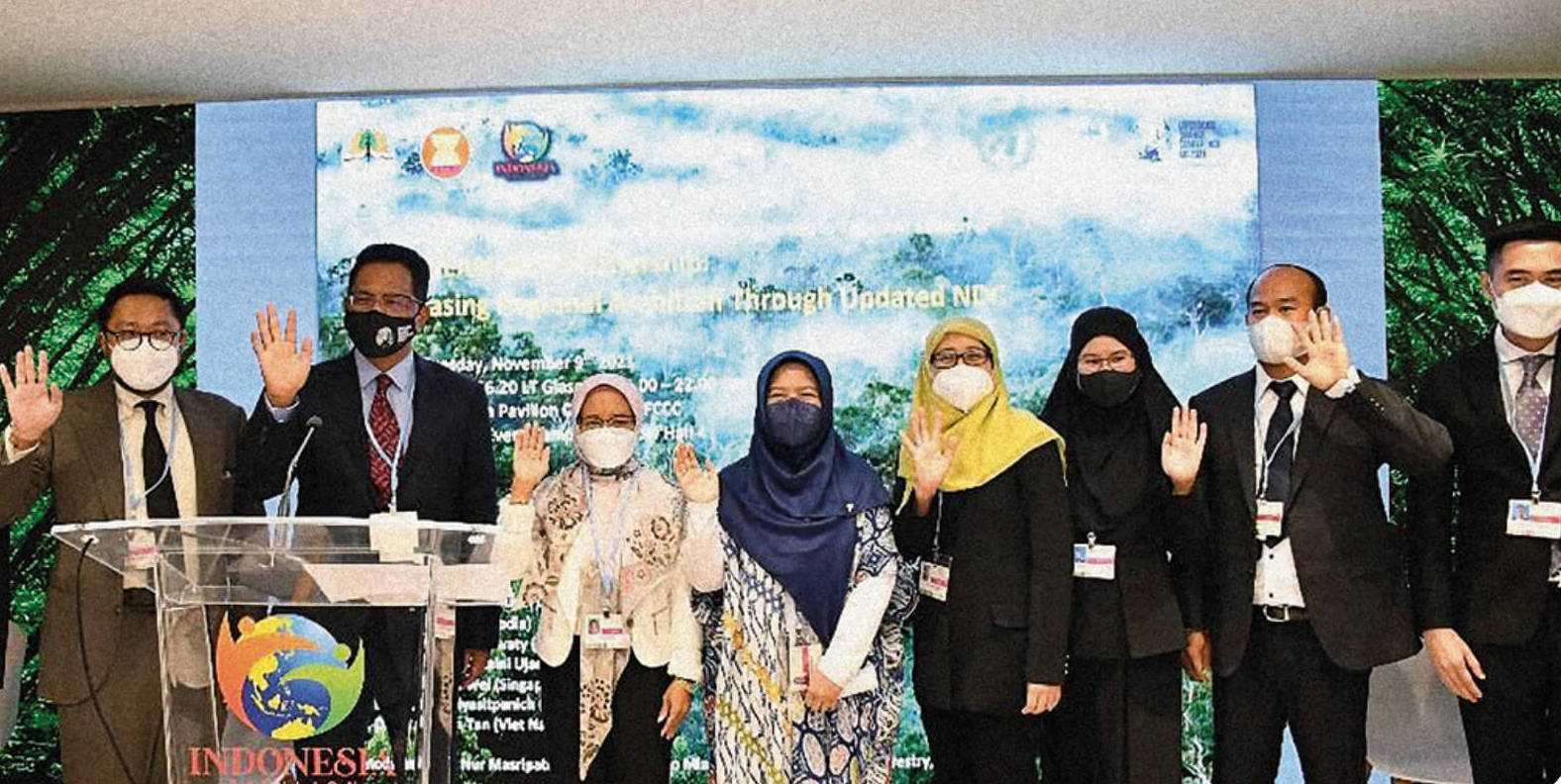
26 Feb 2022
ASEAN Identity and Community Building, Education
Beyond COP26 ASEAN’s Climate Change Agenda
Climate change remains one of the most challenging environmental issues of our generation and is an ongoing threat to global security. Its adverse impacts are manifested across communities around the world including in the Southeast Asian region. Signi

26 Feb 2022
Education, Gender, Health and COVID-19, Poverty Alleviation, Rural Development
Empowering Rural Women: A Story from a Small Village in Java
After a stint as a domestic helper in Malaysia and a business owner in East Kalimantan on the island of Borneo, Mrs. Sani returned to her hometown Karangrejo Village in the mountainous region of Kendal, Ngawi, East Java, Indonesia.There, she establishe
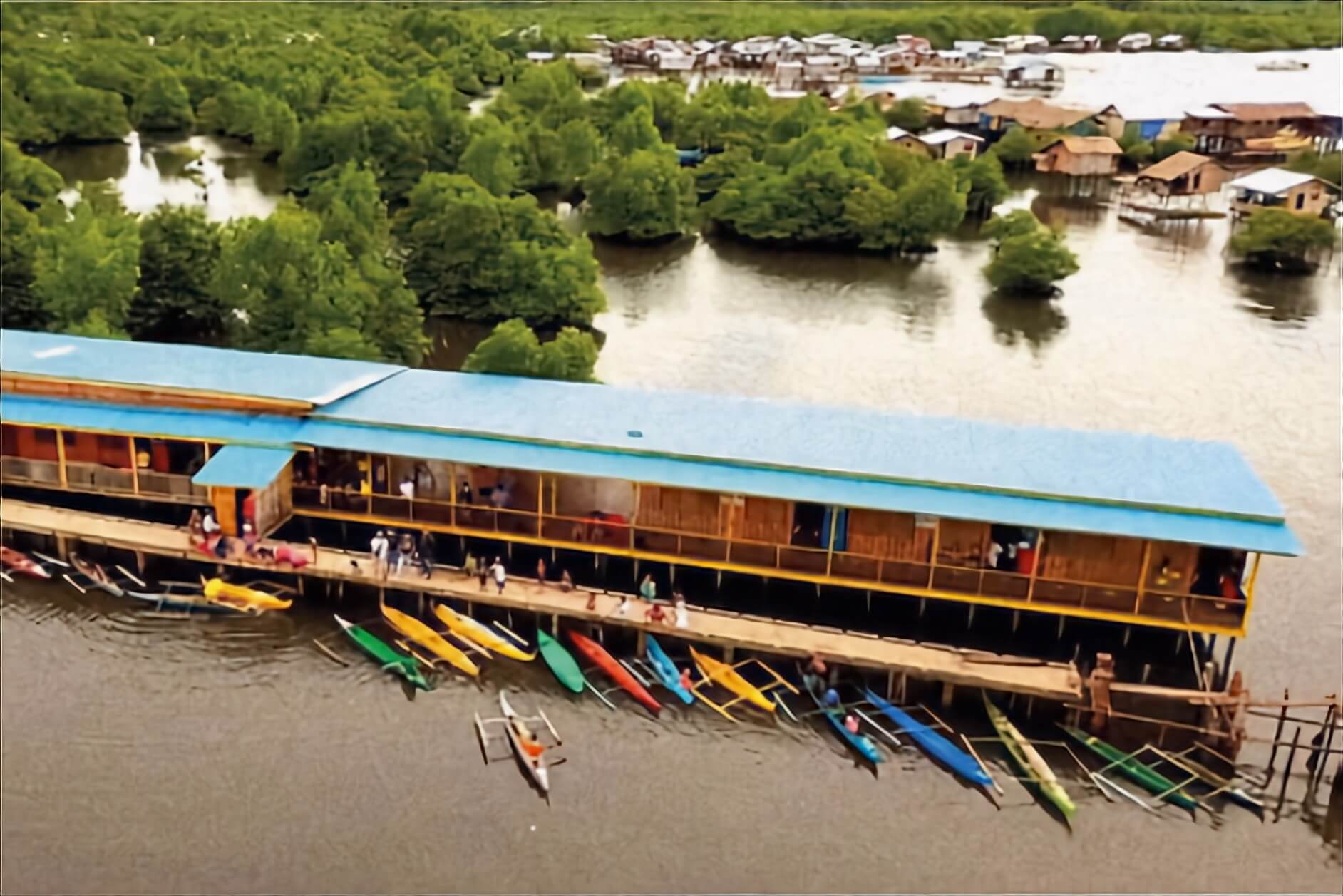
26 Feb 2022
Culture, Social Protection
Literacy and Sustainability in Rural ASEAN
As technology advances, the library is no longer only a place where people can read and borrow books. It also serves as a community hub, providing people with the space to develop themselves and come together as a community. But access to books and lib
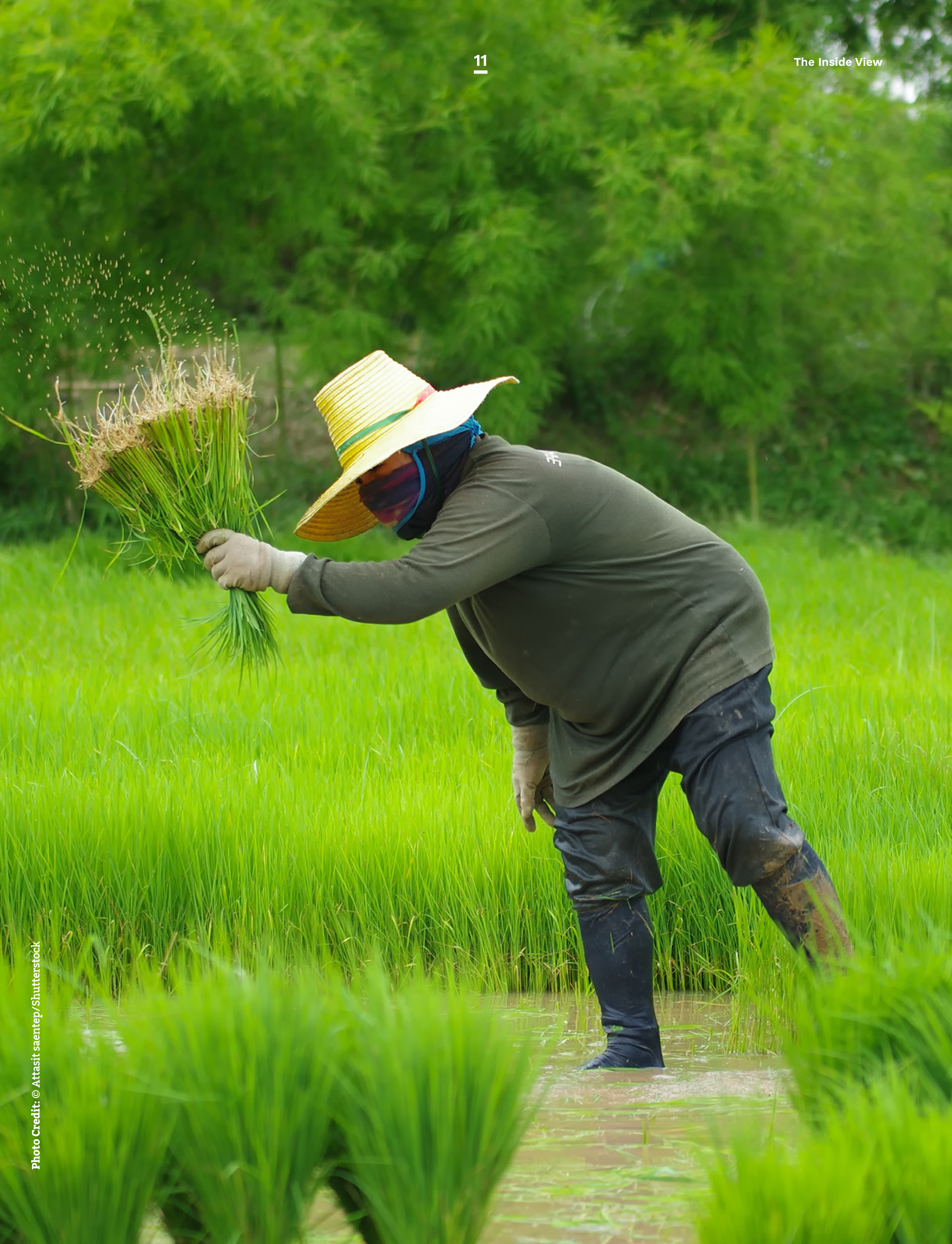
21 Mar 2022
Poverty Alleviation, Rural Development
Transformative Rural Development Towards Poverty Alleviation in ASEAN
Reducing poverty and promoting rural development remain high on ASEAN’s agenda, especially in light of the COVID-19 pandemic. Around 140 to 160 million people are estimated to have fallen into poverty in 2021 due to the pandemic, and people living in r
12 Apr 2022
ASEAN Identity and Community Building, Environment
Building a Community with a Shared Future: ASEAN’s Stake in the Post-2020 Global Biodiversity Framework
The ASEAN Member States joined the global call for “urgent and integrated action” to protect biodiversity at the first part of the 15th Conference of Parties to the Convention on Biological Diversity (CBD COP 15) held on 11–15 October 2021 in Kunming,
12 Apr 2022
Environment
ASEAN in the Face of Global Climate Change Agenda: COP26 and Beyond
Climate change remains one of the most challenging environmental issues of our generation and is an ongoing threat to global security. Its adverse impacts are manifested across communities around the world including in the Southeast Asian region. Sig
12 Apr 2022
ASEAN Identity and Community Building, Culture
ASEAN @World Expo 2020
The World Expo, with its 170-year-long history, has become the birthplace of the world’s greatest inventions and iconic structures. It is often dubbed as the “world’s greatest show” and is held only every five years.
12 Apr 2022
ASEAN Identity and Community Building
Tracking our Progress Towards the Realisation of the ASCC Blueprint 2025
The ASEAN Socio Cultural Community (ASCC) Blueprint 2016-2025 is a statement of commitment of and a guideline for ASEAN in building a community that engages and benefits ASEAN’s peoples, one that is inclusive, sustainable, resilient, and dynamic. As th
12 Apr 2022
Poverty Alleviation, Rural Development, Social Protection
Dimensions of Rural Development and Poverty Eradication The ASEAN Framework Action Plan on Rural Development and Poverty Eradication 2021 – 2025
In the realm of rural development and poverty eradication under the ASEAN Cooperation Framework on Rural Development and Poverty Eradication, two levels of concrete cooperation mechanisms have been established.
12 Apr 2022
Poverty Alleviation, Rural Development
Transformative Rural Development towards Poverty Eradication in ASEAN
Reducing poverty and promoting rural development remains high on ASEAN’s agenda, especially in light of the COVID-19 pandemic. Around 140 to 160 million people are estimated to have fallen into poverty in 2021 due to the pandemic, and people living in
12 Apr 2022
#Reachout: Breaking Mental Health Barriers through Football and Diversity
FIFA and ASEAN proudly joined forces to launch #ReachOut on 2 August 2021. #Reachout is a “campaign designed to promote healthy lifestyles to help combat the symptoms of mental health conditions, and to encourage people to seek help when they need it.”
12 Apr 2022
ASEAN Identity and Community Building, Culture
Rising from the Pandemic—A Culture of Prevention Approach
The COVID-19 pandemic has been the worst crisis in living memory, with its impact falling on almost, if not all, aspects of people’s lives. However, for some, especially the vulnerable, the effects feel disproportionately greater, both in terms of hea
12 Apr 2022
Post-Pandemic Rural Transformation: Bounce Forward through Territorial Rural Development
In the past 20 months, we have seen the impact of COVID-19 on rural communities and the policies and programmes undertaken by our governments to respond to this pandemic. Pre-pandemic, the number of job and production losses and rates of hunger, malnut
12 Apr 2022
Poverty Alleviation
China: Strategies in Rural Development and Poverty Reduction
Poverty is a chronic affliction of human society, and a common challenge faced by the whole world. China is the world’s largest developing country, with a population of 1.4 billion. In addition to its weak foundations and uneven development, the natio
Interviews
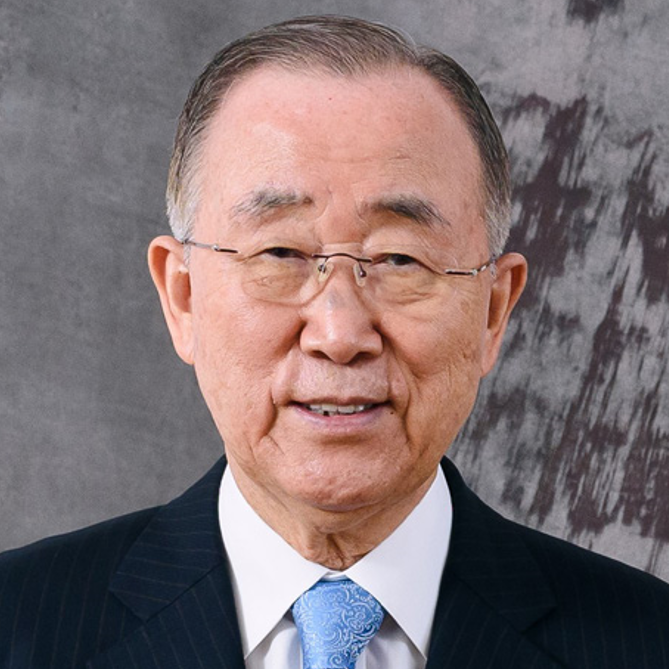
22 Mar 2022
Environment, Health and COVID-19
Ban Ki-moon
Former UN Secretary-General Ban Ki-moon reflects on his 10-year tenure as chief diplomat and development advocate, and the role that mutlilateralism plays in addressing ongoing and emerging global challenges.
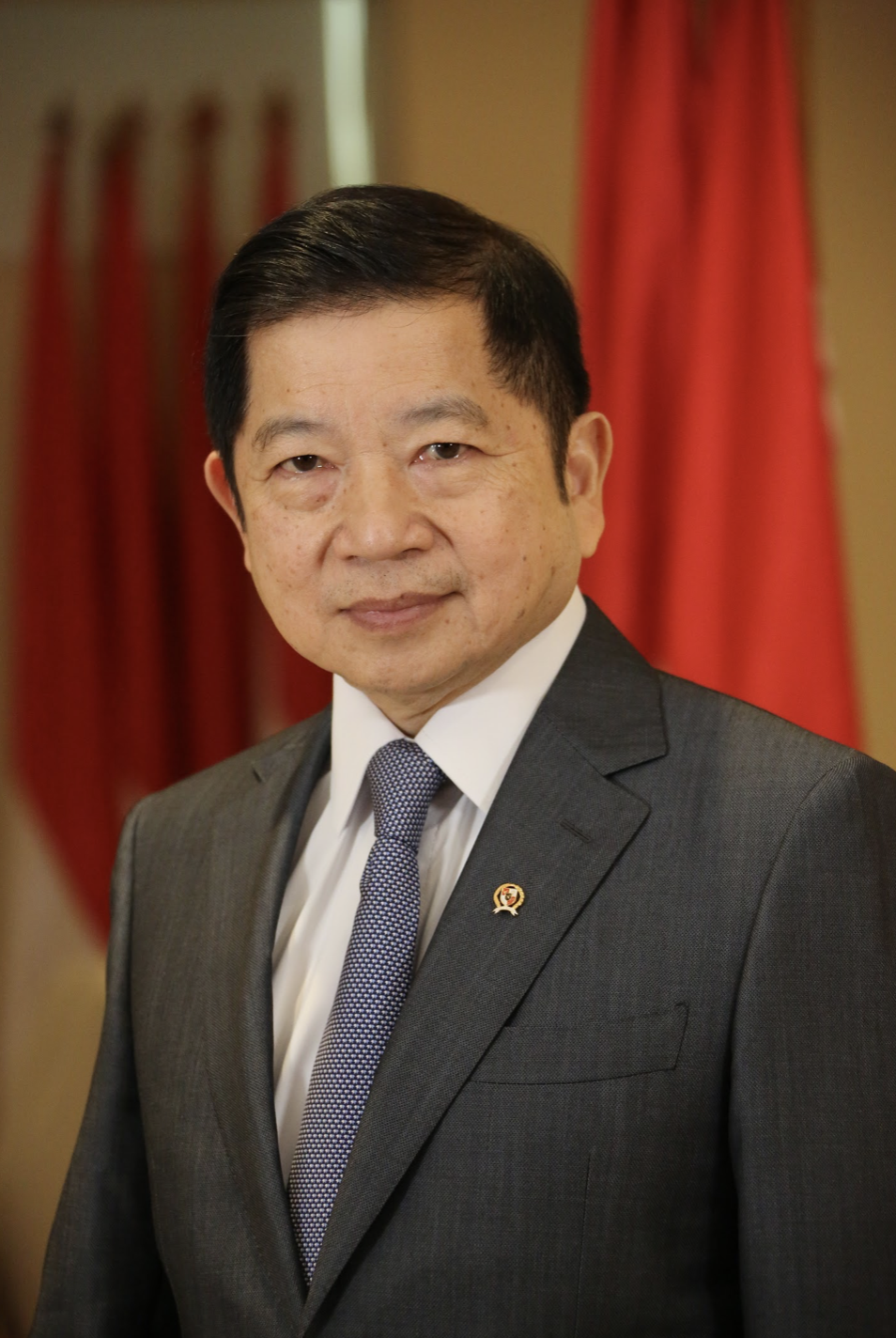
12 Apr 2022
Poverty Alleviation, Rural Development, Social Protection
Suharso Monoarfa
Suharso Monoarfa has been actively participating in numerous development projects in the country. Those experiences have shaped his career as well as equipped him with various essential soft skills.
Conversations
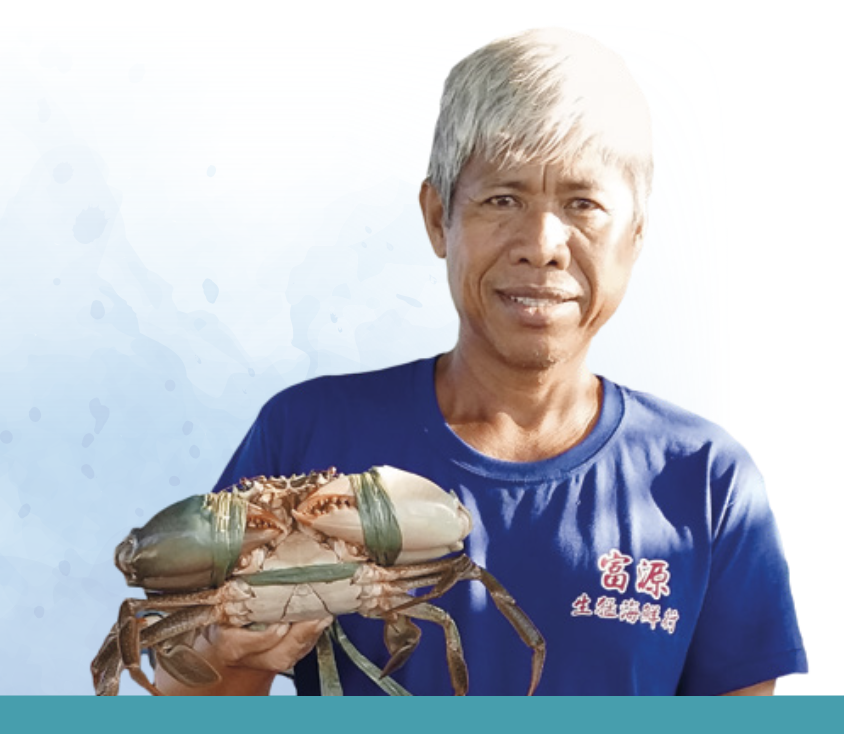
12 Apr 2022
Environment
Roberto “Ka Dodoy” Ballon
Long before experts sounded the alarm bells on depleting mangrove forests, Roberto Ballon, fondly called “Ka Dodoy,” and his fledgling group of fishermen were already knee-deep planting mangrove trees in their coastal community of Concepcion in the Mun
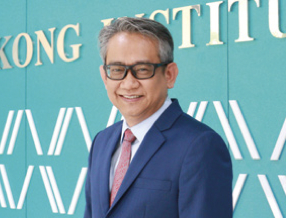
12 Apr 2022
ASEAN Identity and Community Building
Mekong Institute – Bridging Policies and Implementation
In 2021, the Mekong Institute won the ASEAN Prize; a prestigious regional award conferred annually to a citizen or an organisation that has significantly contributed towards ASEAN community-building efforts.

13 Apr 2022
Culture
Bryan Koh
Bryan Koh’s love for Southeast Asian cuisine has led him on an intense food trail to record the lesser-known cuisines of the region that may soon be forgotten.


